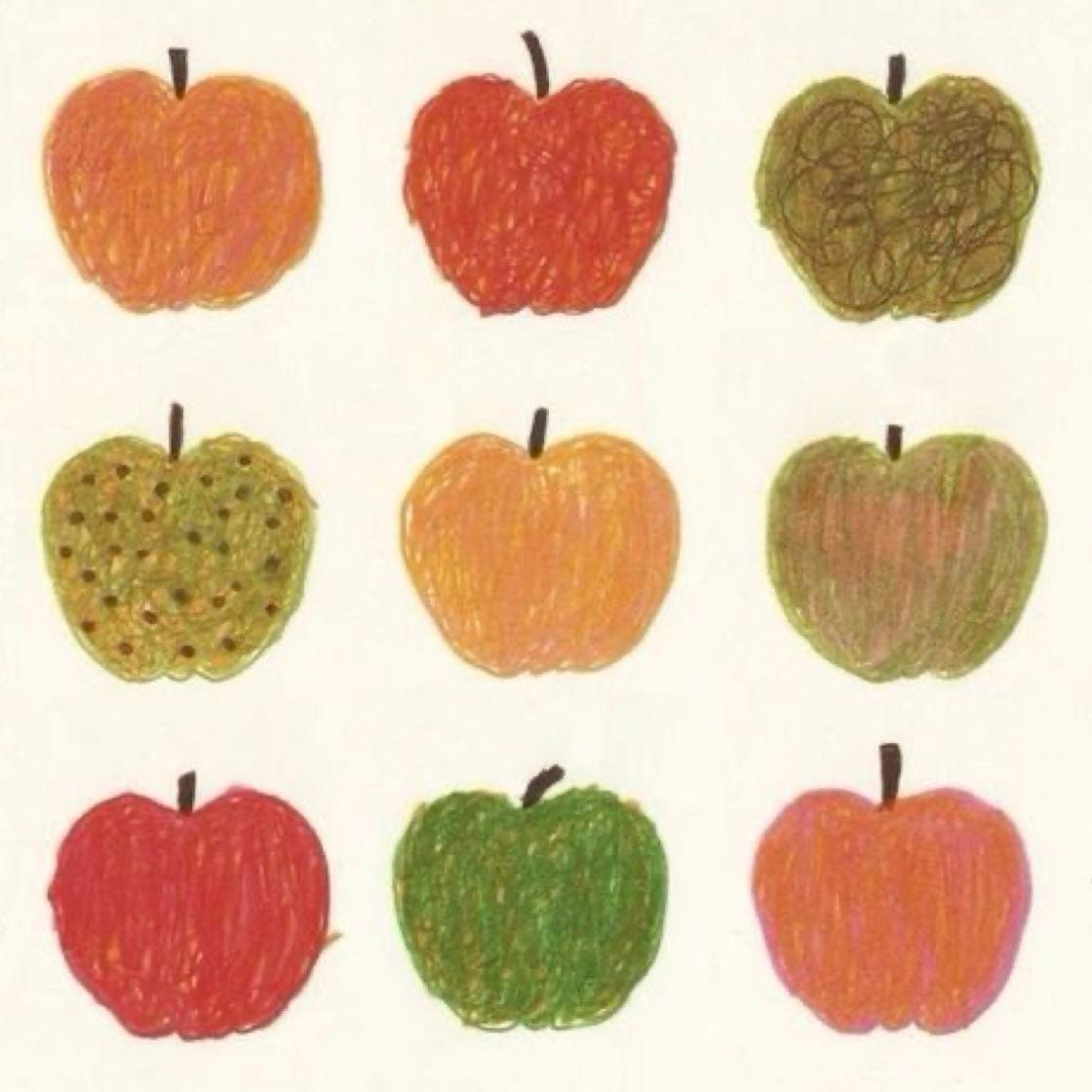During our workshops with learners of all ages, we love conducting a simple activity that reveals something intriguing about human nature and behaviour. We ask participants to draw an apple: nothing more, nothing less. Once they've finished, we invite them to pair up and compare their drawings.
The responses from adults typically sound like this:
"The colours of our apples are different."
"My apple stalk is crooked while hers is perfect."
"My apple is a bit small; his is quite large."
"He didn't draw a leaf, but she did."
When we conduct the same activity with children, their observations paint an entirely different picture:
"We both drew the apples by hand."
"We drew them with pencils."
"We both like apples."
"We have drawn these apples in the same room."
"Both the apples look like a mess."
Notice something remarkable here? The brief was simply to "compare"—not to identify differences or similarities specifically. Yet our lived experiences and conditioning shape what we choose to see.
Adults instinctively hunt for differences, cataloguing what makes each drawing unique or "flawed." Children, with their untainted perspective, naturally gravitate toward commonalities—the shared experience, the mutual enjoyment, the collective human act of creation.
This activity draws inspiration from 27-year-old Nicole Banister, whose life journey taught her to "look for the similarities, not the differences."
"After a lifetime of being a multicultural, multinational Third Culture Kid -- having mixed parents, moving to different cities and countries every two years, being immersed in different cultures and ideologies, and oftentimes having to integrate into new communities that were seemingly very different than my own -- I realized that these 'different' communities weren't so different at all. Variety is the spice of life, but it is our similarities that remind us that we are all human. Regardless of our race, ethnicity, religion, sexual preferences, languages, ages, or anything else that seems to divide us, let us never forget that our differences make us unique, but our similarities make us one."
This week, try the "apple perspective" in your daily interactions:
Instead of noticing what makes someone different from you... Try identifying three things you share in common with them. Whether it's a colleague, a stranger on the bus, or someone from a different background entirely, look for the threads that connect rather than the lines that divide.
Keep looking for similarities,
Team FUEL
Calling All Facilitators: Are you passionate about creating transformative classroom experiences like the apple drawing activity? We're actively seeking facilitators based in Mumbai/Panvel, who want to bring these powerful learning moments to diverse groups of learners. If you're interested in facilitating workshops, please connect with us here.




